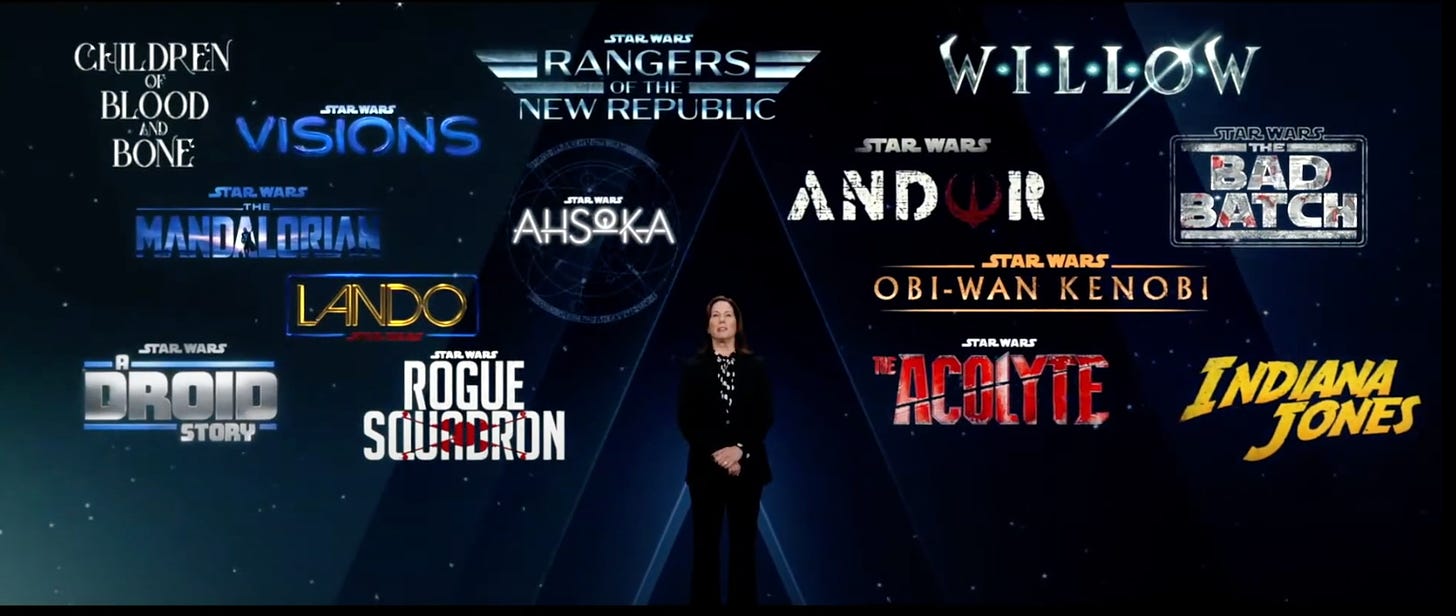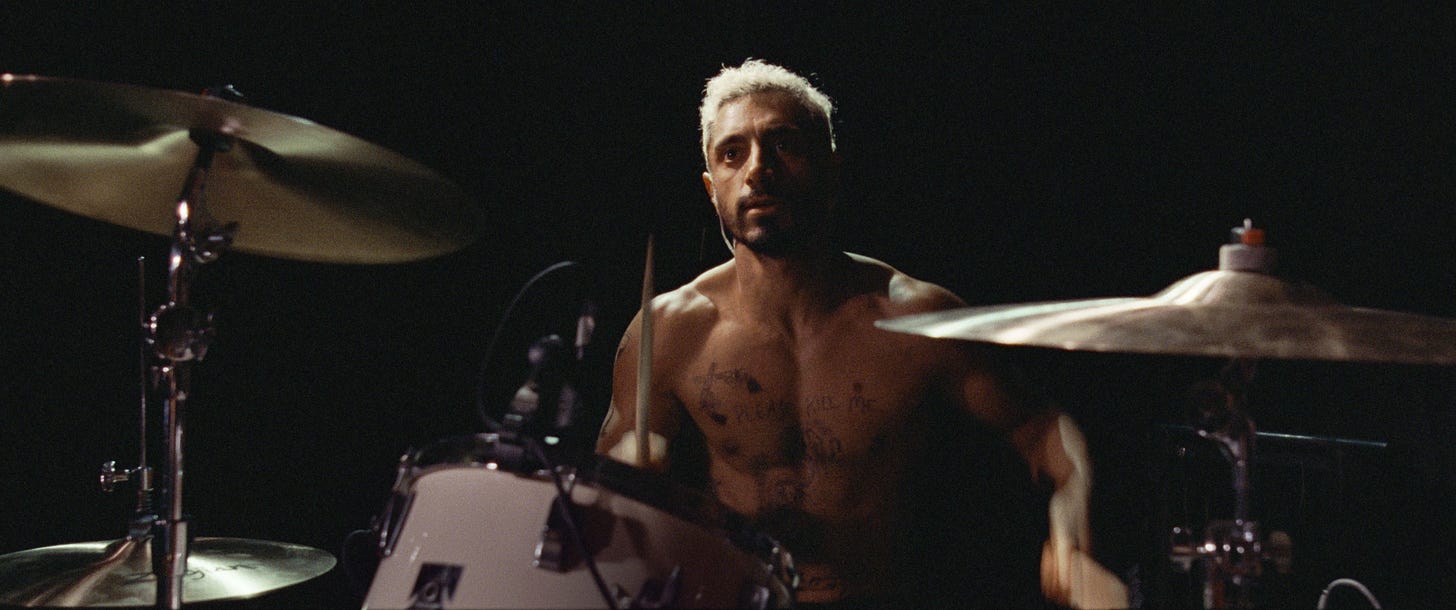Disney: Trading Theatrical Dollars for Digital Dollars?
After the news broke that WB was moving its entire theatrical slate to HBO Max, I suggested in the Washington Post that they were trading theatrical dollars for digital pennies. I think this is still true for a number of reasons, first and foremost that these movies were all going to wind up on HBO Max anyway three to six months after debuting in theaters. The big question is whether or not it is worth forgoing the billions of box office dollars to get them on HBO Max three months earlier. (Spoiler: almost certainly not.)
The Walt Disney Company’s earnings call yesterday suggested that the House of Mouse is going for a much different strategy. It remained committed to theatrical releases, at least in a nominal way, confirming that Black Widow will still be in theaters and announcing Captain Marvel 2, while also revealing a new Star Wars movie to be directed by Patty Jenkins (Wonder Woman) and teasing Taika Waititi’s future Force-friendly project. (Notably absent: Rian Johnson’s previously announced trilogy. Gee. No. That’s too bad.)
But the real action is on Disney’s streaming service. Kathleen Kennedy announced ten Star Wars shows, live action and animated, covering a gamut from old favorites like Obi Wan Kenobi to spinoffs of The Mandalorian. (I’ve got my fingers crossed for a heavy Cara Dune presence in Rangers of the New Republic if only for the Take Wars it will inspire.) Donald Glover playing Lando! Animated shows about Droids! All the Star Wars your happy little brain can handle! Meanwhile, the Marvel portion of the presentation highlighted some shows we already knew were coming (Wandavision, The Falcon and the Winter Soldier, Loki) and some stuff that had been teased (What If … ?, She Hulk) along with a bunch of new (or at least new to me; who can keep track) stuff (Hawkeye, Ms. Marvel, Moon Knight, Secret Invasion, Ironheart, Armor Wars, and a Guardians of the Galaxy holiday special).
ALL of that—everything in the paragraph above—is coming to Disney+ over the next few years. And that doesn’t include random odds and ends like a Buzz Lightyear origin story or a Willow series.
Disney can get away with a huge pivot to streaming in a way that HBO Max cannot because Disney+ is a must-own service for families that simultaneously serves as a funnel designed to capture kids who will want to travel to theme parks and also a content firehose for 30-to-40-somethings who are content to swim in the kiddie shit of Star Wars and Marvel comics forever. (Nota bene: I fall into both of those categories.) Just look at the numbers Disney unveiled yesterday: Disney+ has 86.8 million subscribers, just shy of the upper bound of the 60-90 million Bob Iger had hoped to have.
By 2024.
Given how cheap the service currently is and given how much new stuff is coming—looking at that slate, the first phrase that pops to mind is “churn killer,” churn being the industry term for people who cycle in and out of a service depending on what’s being offered at any given time—no one is apt to complain when Disney raises prices by a dollar a month, to $7.99. A dollar a month on 87 million subs means an extra billion dollars a year—or one MCU hit. If I’m doing my math right, this means Disney will be generating something like $8.3 billion a year from Disney+ if it doesn’t add another subscriber. (Spoiler: it will and Disney has revised their goals upward to 260 million subs by the end of 2024.)
Now, this doesn’t replace Disney’s box office revenue. Not yet, anyway. Between the Marvel movies, Pixar, Star Wars, and everything else, Disney generated almost $13 billion in 2019. But by maintaining a commitment to theatrical—by ensuring MCU movies are still going to hit theaters; by promising a new slate of Star Wars films—Disney is in better shape to double dip than any other studio. They’re going to make many billions at the box office and they’re going to make many billions via Disney+.
Hopefully someone at AT&T and Warner Bros. is paying attention to what a real movie studio’s streaming strategy should look like.
But Disney CEO Bob Chapek isn’t really worried about HBO Max. He has his sights set on Netflix. Disney has a ways to go before they can catch up with the original streamer, with its 195 million global subscribers. Also, consider the following: Disney+ has a natural advantage in that it’s essentially producing tv shows and movies for one market (North America and the English-speaking world) and exporting it around the globe. Netflix, on the other hand, is trying to personalize its efforts, going country-to-country and creating shows and movies that play well in one territory but not necessarily another. This is why Netflix, despite revenues of over $20 billion in 2019, continues to pile up debt: It makes too much stuff and too little of that stuff travels beyond the borders of wherever it’s made.
I am skeptical that Disney+ is a Netflix “killer” for reasons of inertia: Tons of people have Netflix and things that tons of people have don’t tend to go away quickly. However. It seems more and more likely that Disney+ is on pace to be the biggest service in the world in short order. And it will be interesting to see how Netflix responds to that fact.
Sound of Metal Review (Amazon)
There’s something perverse about being forced to watch Sound of Metal at home.
On the one hand, it’s the sort of movie that, in theory, has no place in the multiplex. One that’s better served by the streaming revolution. It’s a smaller-scale movie, with a modest budget, telling a story that’s likely to appeal more to aesthetes than mass audiences. Ruben’s (Riz Ahmed) tale isn’t one filled with spectacle; there are no collapsing buildings, no exploding planets, no invading CGI hordes to be stopped by crusading CGI heroes. It’s not a feel-good crowd pleaser. It’s more personal than that.
On the other, the sound design is such that I can’t help but feel annoyed that I’m watching it in any setting other than one with an immersive, massive sound system. Even if I have modestly better speakers than a television set provides—a Samsung soundbar and subwoofer replaced my TV’s tinny sound years ago—it’s not quite good enough to get the full effect of what Ruben, a heavy-metal drummer who has lost his hearing, is going through. Yes, you can hear that it’s muffled when he’s lost his hearing; grinding when it returns later in the form of neural implants.
But the sound isn’t enveloping. It isn’t cocooning. It isn’t omnipresent or inescapable. You can’t fully appreciate the sound design, the way the mixers have created a land of confusion for Ruben (and, by extension, the viewer as a way of introducing us to Ruben’s new existence). Indeed, I was tempted to switch to my laptop and listen via headphones (a pair of CB-1s from Status Audio will serve you well, my sons), but I didn’t want to diminish the video component either.
Ruben’s journey is not strikingly different from others we’ve seen in recent years; he’s a performer whose body (specifically, his ears) have betrayed him and forced him to reconsider what he’s doing with his life. (Mickey Rourke’s Randy “The Ram” Robinson in Darren Aronofsky’s The Wrestler comes to mind.) But Ruben has better support than Randy ever did, a girlfriend and bandmate named Lou Lou (Olivia Cooke). She saved him when he was a junkie. He saved her when she was a cutter. And that mutual-support system is about to fall apart because he can’t do the thing he loves anymore.
Lou Lou gets Ruben placed in a home for deaf addicts—or perhaps I should say Deaf addicts. The upper case is important. It’s a community that takes pride in their auditory defects, refusing to see them as a handicap or something to take pity on. (For more on this subset of the Deaf, you can read Jonathan V. Last.) Ruben has difficulty fitting in at first but then, as time wears on, a shift takes place. We can literally see it onscreen.
As Ruben learns to sign, we begin seeing subtitles—subtitles that weren’t present before he learned. We were as in the dark as he. This allows us greater understanding, just as it does Ruben. But it signifies that we are now outsiders looking in, the equivalent of English speakers watching a foreign language film, touring a different country. He has found a new tribe—and with it, greater happiness, greater ease. He’s happier, better with the kids and adults alike. Able to write and focus.
The tragedy of Ruben is his inability to accept this new world, to allow himself to be admitted to it fully. He wants what he had before—who he had before—and cannot grant himself the serenity to accept what has changed within him. It’s a hard lesson, dearly bought. But Ahmed’s twitchy anger at his predicament perfectly conveys just how maddening it is to find yourself unable to navigate the world, unable to rely on basic things you’ve taken for granted. The most basic thing, really.
The ability to understand.
Assigned Viewing: The Fifth Element (Hulu)
I’m recommending The Fifth Element today because one of its supporting actors, Tommy ‘Tiny’ Lister died yesterday, apparently following complications from COVID-19. Readers of this letter will likely remember him best as the prisoner on the ferry in The Dark Knight who throws the detonator out of the window. But he was a consummate character actor, showing up in five to fifteen movies a year in a small role here or there.
I’ve always loved his turn as the president in The Fifth Element, simultaneously all-powerful and henpecked. If you’ve never seen it—and really, c’mon, it’s a basic-cable classic, why haven’t you?—you should. It’s streaming on Hulu now.






